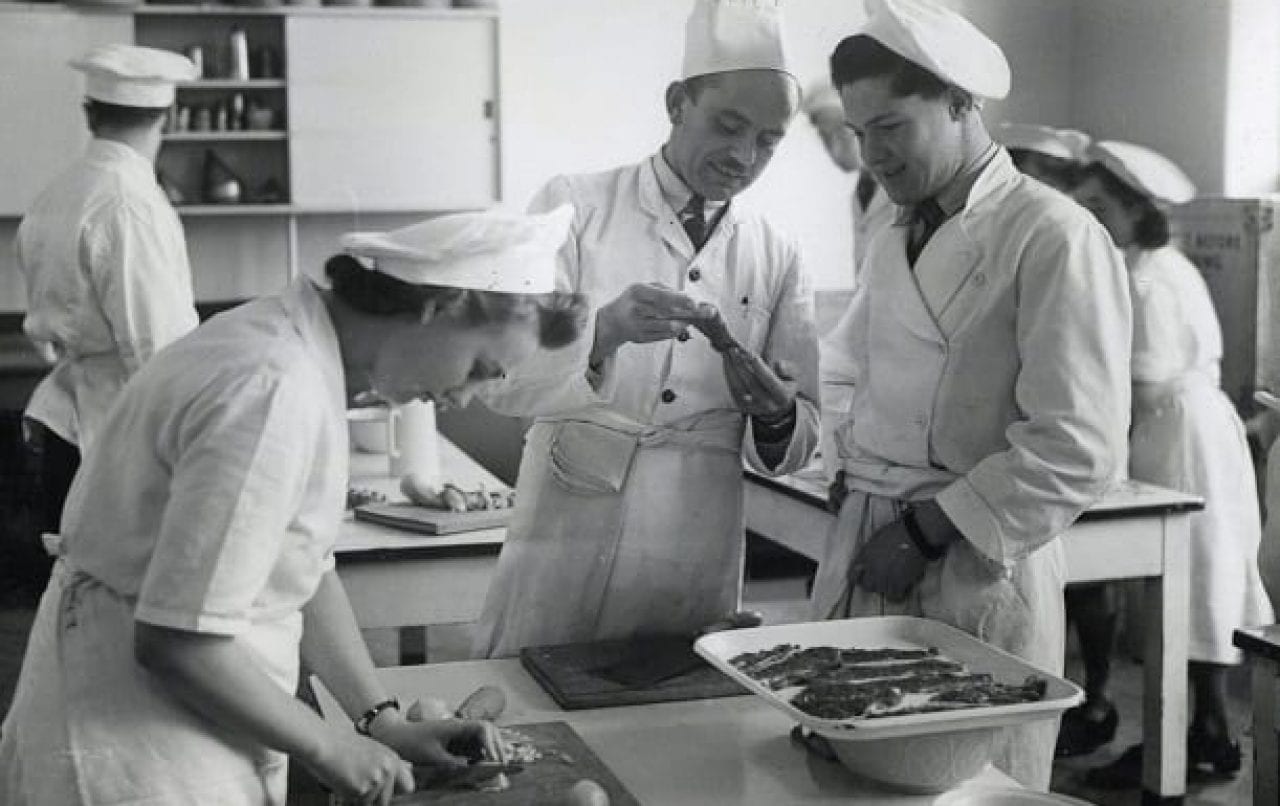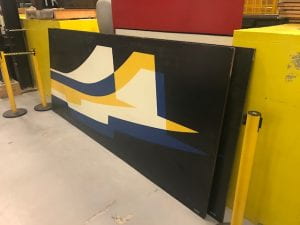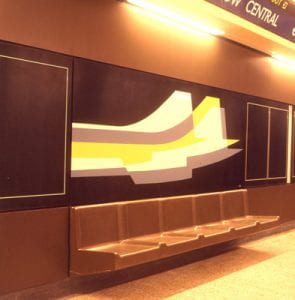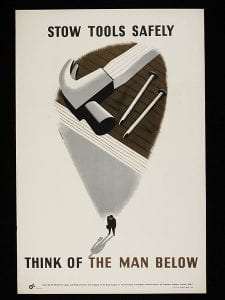UWL Archives is the proud custodian of two Tom Eckersley murals. These are part of a set of nine artworks originally displayed on the platforms at Heathrow Central Station when the extension of the Piccadilly line first opened on this day 42 years ago (16th December 1977). The murals were donated by TfL in June 2018.
Eckersley was born on 30 September 1914 in Lancashire. In 1930 he began his study at Salford Art School where he was soon awarded the Heywood Medal for Best Student. In 1934 Eckersley moved to London with a desire to become a freelance poster designer. He was accompanied by Eric Lombers, a fellow student and future collaborator on commissioned poster designs.
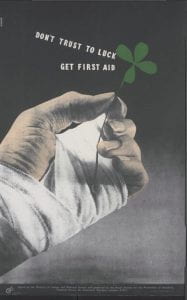
https://upload.wikimedia.org/wikipedia/commons/3/3e/Don%27t_Trust_to_Luck_-_Get_First_Aid_%28recto%29_falling_Objects_Cause_Accidents_%28verso%29_Art.IWMPST14465.jpg
Eckersley-Lombers posters were both eye-catching and functional and proved popular with advertisers. They supplied full size artwork with hand drawn lettering for their poster designs. Eckersley was also involved in the teaching of graphic design: he and Lombers worked as visiting lectures in poster design at Westminster School of Art. The poster became recognised as a design piece in the 1930s however they were restricted by tariffs imposed for displaying posters in public places. Eckersley’s bold, simple style was well-suited for the workplace safety posters he produced for the Royal Society for the Prevention of Accidents (RoSPA) throughout his career.
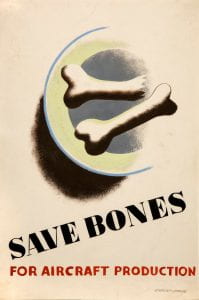
https://commons.wikimedia.org/wiki/File:INF3-199_Salvage_Save_bones_for_aircraft_production_(plate_of_bones)_Artist_Eckersley-Lombers.jpg
World War Two ended the Eckersley-Lombers partnership as they joined different military services. There was a decline in commercial advertising which led Eckersley to create posters for RoSPA which were aimed at factories that were part of the war effort. The posters are striking in their bluntness as with little text it is the illustration that catches the eye.
Eckersley originally joined the Royal Air Force for cartographic work but later transferred to the Publicity Section of the Air Ministry. In 1948 his contribution was recognised with the granting of an Order of the British Empire (OBE) for services to poster design. The ability of the poster to communicate complex messages was recognised so they became propaganda messages and instigated the development of mass media. The demand for government information posters reduced after the war and commercial advertising was still limited. However, Eckersley was able to gain commissions from new sources such as Gillette and old sources such as the General Post Office.
Eckersley taught poster design at the Westminster School of Art from 1937 to 1939. In 1954 Eckersley joined the London College of Printing (LCP, now named London College of Communication) to teach undergraduates. Here he established the first undergraduate courses in graphic design in Britain. He was Head of Graphic Design at the College from 1957 until 1977. Eckersley also continued to complete commissioned work, adding The United Nations Children’s Fund, the World Wide Fund for Nature, the National Business Calendar Design Awards and Cooks to his list of clients.
Eckersley was one of the most iconic poster designers and graphic communicators of the twentieth century, who combined practice with education. In addition to poster making and book illustration he also produced magazine covers and logos. His designs put across complex messages by bringing together text and pictures. The range of companies who commissioned both the Eckersley-Lombers partnership and Eckersley individually reflects the wide appeal of their/his striking designs and include: British Petroleum; the British Broadcasting Corporation; London Transport; the Ministry of Information; the Royal Society for the Prevention of Accidents (RoSPA); the General Post Office; Gillette; London College of Printing; Guinness; the Inner London Education Authority; and many more.
